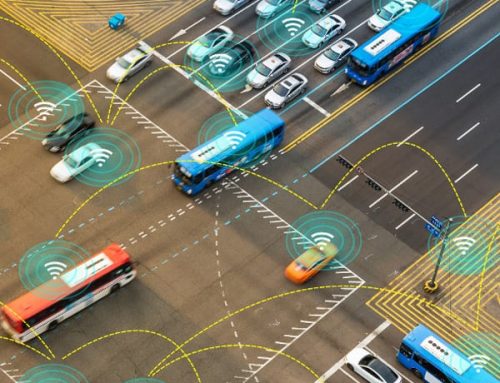Today, let’s discuss new revenue ideas for funding our transportation infrastructure. This is where the fun begins!
If you missed the part about WHY we need a new means for funding the maintenance and growth of our transportation infrastructure, then let’s recap: 
First, the Highway Trust Fund (HTF), which pays for much of our roadway development, is depleted. At the same time, the revenue to the HTF from gasoline taxes – already not enough – only promises to decline as fuel efficiency increases. Concurrently, much our infrastructure is at a critical juncture in it’s life cycle — in need of major repair or a complete rebuild.
It’s the perfect storm: Less money when more is sorely needed.
So, how do we raise more money for the work which needs to be done? Here are some scenarios swirling around policy war rooms today:
- Reconfigure the gas tax to an ad valorem tax: Setting the gasoline tax as a percentage of fuel purchase instead of a flat, cents per gallon tax would be a better way to index revenue to road use and inflation. However, this idea presents a future conflict of interest to a nation which seeks to incentivize sustainable energy solutions and reduce its dependence on oil. How can we justify funding mobility from the sale of fossil fuels?
- Toll roads: This classic model will have a new spin in that your toll road might be leased to a private company that has been selected to operate and maintain the road for a specific number of years. They will recoup their operating costs through tolls to the user, and will be responsible for upkeep and performance as well as all services provided on the facility. In some cases, the investor will also design, build, operate and maintain the roadway, for which they will be awarded a much longer lease (we’re talking greater than 50 years). In the business we call this Public-Private Partnership, PPP, or P3, and it’s already a successful model in many U.S. states.
- Vehicle Miles Traveled (VMT): Given the advent of more fuel efficient vehicles, this idea is meant to recapture monies lost in gasoline sales. It seems to be a more effective use tax, since it is fairly applied by actual miles driven than by gasoline consumed, and may be a better behavioral incentive for eliminating trips, combining trips, or exercising mode choice. Since mileage tax is collected by the states, this proposal gets sticky when drivers cross state lines, but I am certain since I’ve last read up on the topic that they have come up with a solution to this problem. (Anyone?)
In the United States, one can expect that in the future there will be a more direct correlation between transportation mode of choice and individual burden/cost. This means there will be a different and very direct price to fly, drive, bus, rail or bike it. The user will certainly weigh this price against available time and budget, then make choices accordingly. The biggest change will be in the cost to drive…and it may change the way you move forever.
How do you believe these hypothetical changes will affect your own travel behavior? What cultural/societal shifts do you predict will occur as a result of such changes?
Special Thanks to Contributing Researcher & Writer Crystal Pendergrass, civil engineer/jobseeker, and to Contributing Editor, Donald Galligan, AICP, all around nice guy.





Why do we need a new tax? Why do we need toll roads? Saying the money isn’t there misses the point, because the money is there, but it is going to things less important that building roads and educating our kids.
David-
You are right in that some States take the fuel tax money and put it into a slush fund to be used however, but many States (like PA) and the Federal portion of the fueul tax go directly to the DOT’s for their road and bridge needs.
The company I work for does some DOT projects, and they are very competitive to get. Low bidder gets work. States right now, example CA, are bragging about how much money they are saving due to the competitive atmoshpere of heavy highway contracting.
I just returned from a confrence with the American Road and Transportation Builders Association (ARTBA), and funding of bridge and road repairs was a hot topic. They know we will have some serious issues with our infrastructure in the near future if we do not invest in them. But what I realized was their focus is on working directly with the politicians to justify the need for funding. I think the American people need convienced there is a need first and that it is only fair that they contribute to the roads and bridges they use everyday. Once they are convienced, I believe one of two things will happen: 1-the people will pressure the politicians to fund our roads and 2- the politicians will not fear passing funding since the people want it.
Josie-
I don’t think tolls is the best way for funding, because; it slows traffic, funding to the local roads will be limitied, and tolling adds more CO2 emissions. Private companies could still run sections of our interstates, but they could be compensated by other methods. As with ARTBA, I think the “how to fund” is putting the cart before the horse, we need to convience the people “why to fund” first. Just like any fund raiser, the first step is to get the people to believe in the cause first, and then ask for how they would like to pay at the end.
There are several dimensions to the conundrum we face as a society that goes something like this:
1) our infrastructure is inadequate and/or falling apart; and
2) we lack the funding, or more precisely the political will to utilize available funding mechanisms, to pay for their improvement.
.
While I am not a politician, I have the chance to elect them in a week . . .
And this problem is NOT an engineering problem because the construction and design professionals certainly know how to build/repair roads and bridges and even railroad tracks
And this problem is generally NOT a problem of economics (except for “high-speed” rail, which a competely separate issue), because in almost every case the value that transportation provides to the user or freight owner is much higher than the direct and indirect expenses that the user is asked to pay. This is supported by, setting aside the general economic activity, there is continuing high demand for transportation services regardless of fuel prices, truck driver availability, tolls or delays/congestion on various roads. In other words, transportation demand is highly inelastic and will bear higher prices.
.
But this problem IS POLITICAL isn’t that different than what we are facing in health care. The United States had a very productive economy following WWII and become quite prosperous. We gradually grew accustomed to having and consuming many benefits and privileges – such as being able to drive “for free” from New Jersey to Oregon. But as many readers of this blog know, the capital cost of infrastructure is only 25~35% of its lifecycle costs and that life is not unlimited. So, as a society, we are confronted with the challenge of having to pay for something that many of us think we should be getting for free, or at least for a very low cost.
.
Ouch. Yep, the bill has come due. The only question is, what are we going to do about it? Lots of challenges; lots of opportunities.
.
Moffatt & Nichol writes a quarterly newsletter on high-level issues affecting the development and financing of infrastructure, mostly around ports and terminals, but also affecting highways and railroads. Contact me if you want to know more about what we do.
[…] This post was mentioned on Twitter by Josie Summa, Mike Anderson. Mike Anderson said: RT @redmondsearch Blogged It: What are your thoughts on use-based funding options for transportation infrastructure? http://twurl.nl/ks8plt […]
Social comments and analytics for this post…
This post was mentioned on Twitter by sgollish: redmondsearch
RT @redmondsearch What are your thoughts on use-based funding for transportation infrastructure? http://twurl.nl/ks8plt…